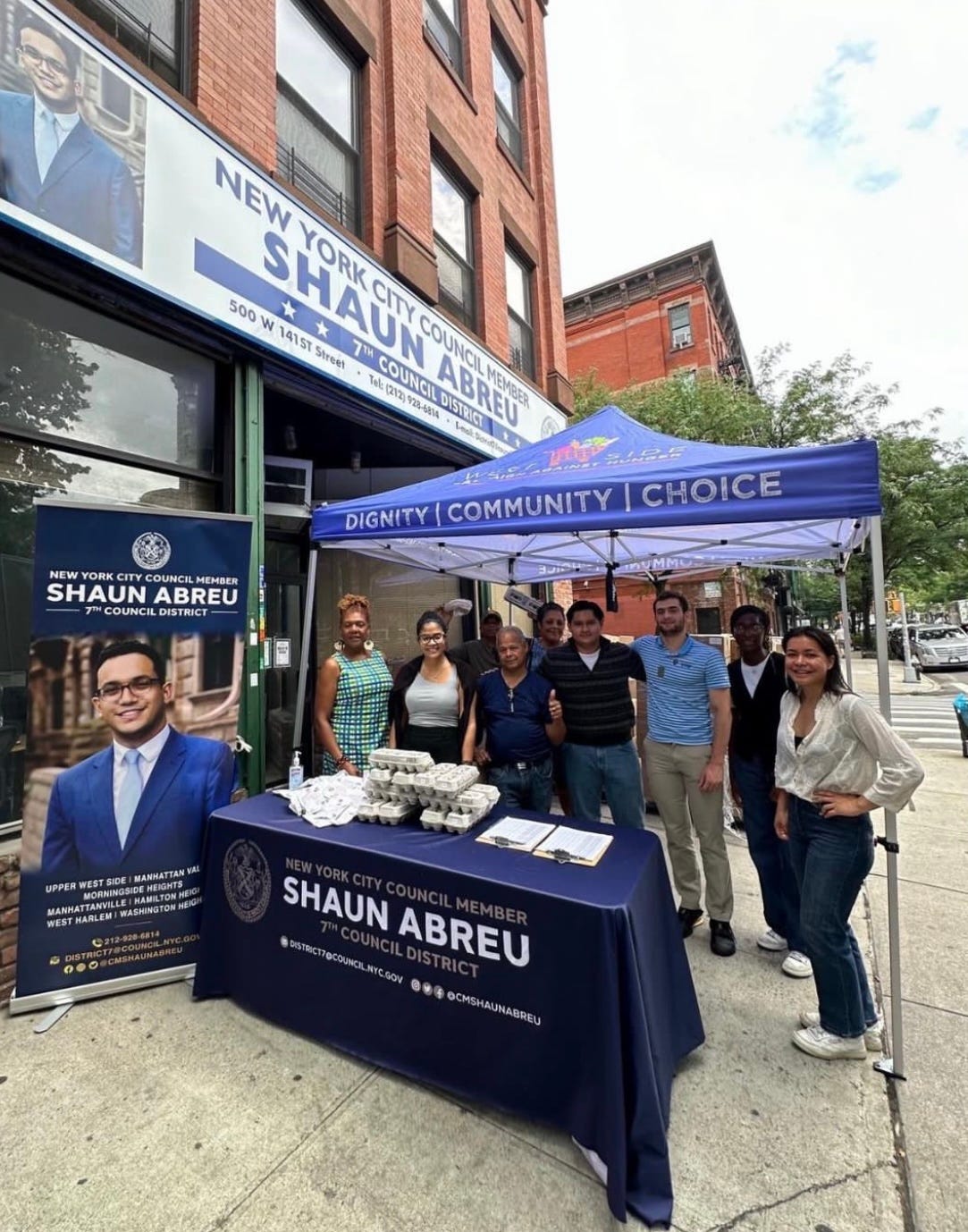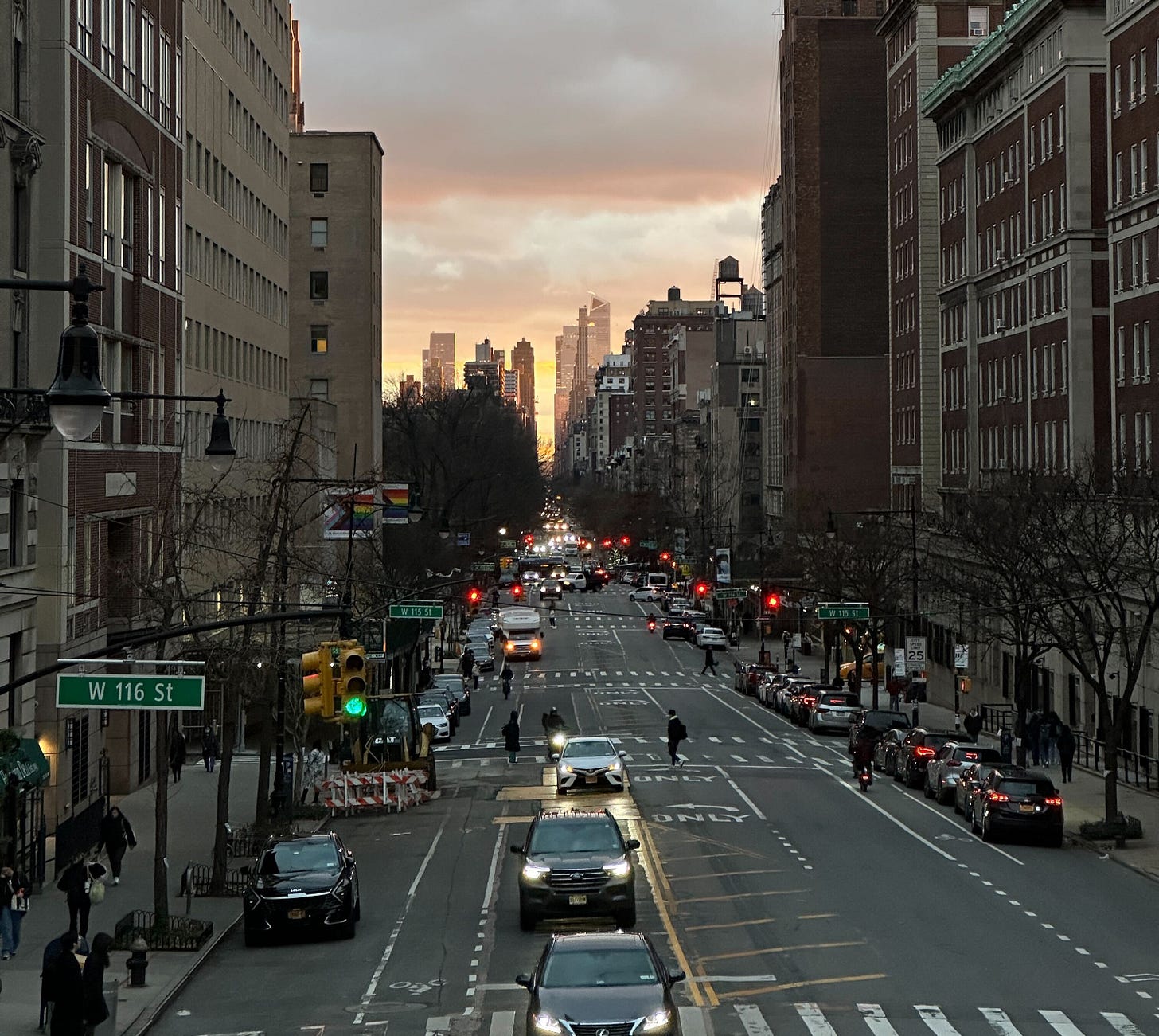True Social Justice Starts in Our Backyard
Rallying around issues in our community can help bring students together.
Since October 7, Columbia students have intensified their advocacy for causes thousands of miles from campus.
Make no mistake: It is admirable that so many of us care about the world beyond our community. However, focusing on polarizing international issues has only heightened tensions on campus—especially when what we do here doesn’t have much of an effect on the situation in the Middle East. No amount of tent-pitching and fiery social media posts can change that.
After the events of the spring semester, it is clear that we need to re-evaluate our priorities to heal as a community. What we haven’t done yet is rally around causes we can influence, causes that are close to us, and causes that can bring us together as a community.
An ideal place to start would be our immediate surroundings: Manhattan’s City Council District 7.
District 7, which stretches from West 92nd Street to West 165th Street, has its fair share of problems. When we were so preoccupied with events in the Middle East this past semester, we lost sight of the fact that our city has a full-blown housing crisis which has continued for years now.
Housing-related issues were the biggest reason constituents sought help from the District 7 office, where I interned this summer. The average rent in Manhattan is over double the national average, and people have trouble paying it off. For constituents facing eviction, most legal services are so expensive that residents feel they have nowhere to go besides our office, where we refer them to legal aid resources.
“Columbia is the biggest private landowner in New York City, and that’s a big deal in a city that desperately needs more housing and lower rents,” Councilmember Shaun Abreu CC ’14, who represents District 7, wrote in a statement to Sundial. “We need everyone in the fight when it comes to housing, and students are in a unique position to advocate for better policy that could benefit them in the long run.”
Pro-Palestine protestors argue that the Palestinian cause is deeply connected to what’s going on in our neighborhood. One of the Columbia University Apartheid Divest coalition’s primary demands is: “No land grabs, whether in Harlem, Lenapehoking, or Palestine. Cease expansion, provide reparations, and support housing for low-income Harlem residents.”
Viewing local issues through an intersectional lens and arguing that a war 4,000 miles away is somehow related is a mistaken approach. Neither the Israel-Hamas War nor the State of Israel affects local housing (and the insinuation that the Jewish state controls the housing market invokes blatantly antisemitic tropes).
However, local issues like housing and the cost of living do affect Columbia students directly, especially those that wish to live in New York City after graduation. The 2021 Columbia graduate student strike lasted 10 weeks and started in part due to concerns over student worker compensation that would allow them to “survive in NYC.”
“When you’re 22 and job hunting and the average rent is $4,000 per month—staying [in New York City] might not be an option,” Abreu wrote.
Issues like housing affect all of us, whether we identify as pro-Palestine or pro-Israel. Pro-Palestine students need not make enemies with pro-Israel students if both agree that our city’s housing crisis—or any other local issue—urgently needs a solution.
Accordingly, outside our campus gates, where the war is a less salient issue, there is much less of a sense of division, despite our district’s ethnic, economic, and political differences. This summer, while interning at Councilmember Abreu’s District 7 office, I witnessed how the neighborhood rallied around community events like food pantry drives. On occasions like these, everyone seemed to know everyone—residents volunteered when they can, constituents gave hugs to my supervisors from the councilmember’s office, and people from all walks of life approached our booth and greeted us as friends.
And, of course, many constituents call in to advocate for the issues they care most about.
“We have a common thread—we all want to be able to take care of ourselves, take care of our families,” Abreu wrote. “Affordable housing, park access, public safety, survival of our small businesses—these policy issues cut across every community in our district.”
As a result, the district’s tight-knit community is able to put differences aside and unite around important causes via processes like participatory budgeting, where the city’s residents vote directly on how $1 million set aside by the City Council should be spent. Advocates in the district have also rallied residents for causes at the city and state levels; most recently, they successfully got the city to reverse budget cuts to the New York Public Library.

Columbia’s administration has tried to improve its standing in the Morningside community through the Columbia Neighbors initiative, but the onus of local impact should fall on us students. How can we be “good neighbors” if we don’t advocate directly for issues unfolding right before us properly? Do we not “rise by lifting others,” as many social justice warriors claim?
In other words, to rebuild Columbia, we have to be good neighbors.
“There are a number of avenues for Columbia students to get involved, including interning in my office, volunteering for local non-profits, attending community board meetings, testifying at city council hearings, and engaging with the issues affecting our community—from housing to healthcare,” Abreu wrote. “If Columbia students want to make an impact, there’s no better place to start than the community right outside the gates.”
Mr. Engel is a senior at Columbia College studying history and a staff writer for Sundial.



